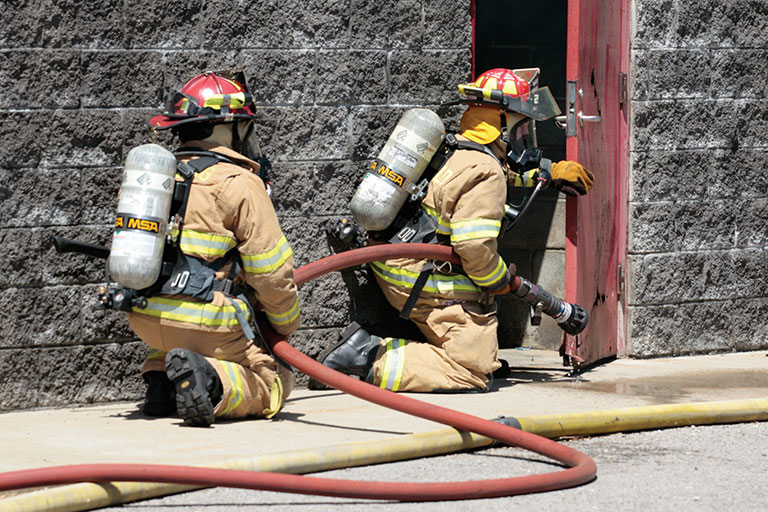Stop, drop, roll and get ready to meet the challenges of being an emergency responder.
What is Fire/Rescue Science Technology?
If you are wanting to start a career in emergency services or currently work in the field and would like to upgrade your skills, the Fire and Rescue Science Technology Program is for you. The program includes courses in fire prevention and suppression, technical rescue, emergency medical care, leadership and more.
The program does not require experience in emergency services. The degree, certificate and diploma programs will allow you to get a job in emergency service fields or if you are already a firefighter, help you in attaining a promotion.
If you are interested in the Associate Degree program, you will complete approximately 18 credit hours of general education coursework and 46 credit hours of fire/rescue/EMS classes. If you have prior firefighting experience, you may be able to bypass many of the classes by taking the Firefighter 1 and 2 IFSAC accredited certification testing.
Not sure which career pathway to pursue? Take our Career Assessment to discover what pathway fits your interest and skills.
Getting Started
What are my degree, diploma, and certificate options?
How Do I Pay For This?
What Else Do I Need to Know?
Additional Information
Length of Program
Students seeking an Associate in Applied Science degree can complete the program in four or five semesters by completing a total of 61-64 credit hours. Those seeking a diploma can complete their plan of study in four semesters by completing a total of 52-55 credit hours of technical and general education courses. Certificates embedded within the diploma may be awarded as credential requirements are met. Day classes, evening classes and some weekend classes are offered during two 16 week semesters (August-December and January-May) each academic year.
This information should not be considered a substitute for the KCTCS Catalog. You should always choose classes in cooperation with your faculty advisor to ensure that you meet all degree requirements. Check out the Fire Science Technology Two-Year Schedule to see when classes are offered.

